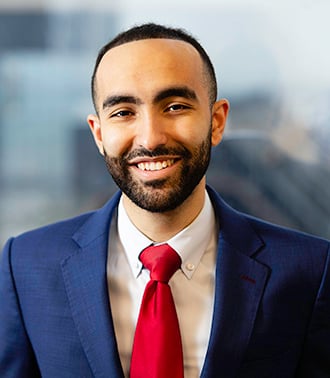February 28, 2022
Lit Alerts—February 2022
A Publication of the Litigation Practice Group
Personal Jurisdiction: Fourteenth Amendment Does Not Limit a Federal Court’s Jurisdiction Over FLSA Claims of Non-Resident Opt-In Plaintiffs
The US Court of Appeals for the First Circuit in January, 2022 affirmed the denial of a motion to dismiss for lack of personal jurisdiction over a collective action that included out-of-state plaintiffs. In Waters v. Day & Zimmerman NPS, Inc., an employee filed suit for himself and similarly situated employees against their employer (D&Z) for failing to pay overtime wages required by the Fair Labor Standards Act (FLSA). D&Z is incorporated in Delaware and headquartered in Pennsylvania. The plaintiff worked for D&Z in Massachusetts and filed suit in the District of Massachusetts. More than 100 “similarly situated” employees who worked for D&Z in other states opted into the lawsuit.D&Z moved to dismiss the lawsuit based on the Supreme Court’s decision in Bristol-Myers Squibb v. Superior Court of California (BMS), 137 S. Ct. 1773 (2017), which holds that the Fourteenth Amendment’s Due Process Clause forbids state courts from entertaining a state-law mass action to the extent it includes claims of out-of-state plaintiffs with no connection to the forum state. The district court declined to dismiss the action, finding that BMS’s holding does not extend to FLSA cases in federal court. The First Circuit affirmed, reasoning that Federal Rule of Civil Procedure 4, governing service, “utilize[es] a given state's long-arm statute incorporating Fourteenth Amendment requirements[, but] does not show that the Fourteenth Amendment applies to federal-law claims after service is satisfied.” Once service is effectuated in such a case, the court found, a federal court’s jurisdiction is limited by Fifth Amendment Due Process, rather than the Fourteenth Amendment. In so holding, the First Circuit broke from the Sixth and Eighth Circuits.
Trade Secrets: 11th Circuit Revives $100 Million Claim Against Boeing Erroneously Held Time Barred by District Court
The US Court of Appeals for the Eleventh Circuit in February 2022 revived a subcontractor's claim that Boeing stole trade secrets after their deal to work together on a $1.3 billion Air Force contract fell apart. The court found the US District Court for Alabama had applied the wrong state’s statute of limitations in ruling the trade secrets claim was time barred. Under a nondisclosure agreement between Boeing and Alabama Aircraft Industries Inc. (AAI), a Missouri law with a longer time limit should have been applied, the court held.A jury had ruled in March 2020 that Boeing violated the NDA and a memorandum of agreement with AAI when Boeing withdrew from a teaming agreement to jointly pursue a contract for maintenance, repair, and upgrades of the US Air Force’s KC-135 Stratotanker fleet.
According to the opinion, Boeing knew that KC-135 maintenance accounted for more than 80% of AAI’s annual revenue, and put together a plan behind the scenes to force its subcontractor out of business. Boeing ultimately won the Air Force contract with a solo $1.165 billion bid, driving AAI into bankruptcy and later prompting AAI’s litigation trustee to sue.
AAI claimed that a choice-of-law provision in the NDA required the use of Missouri law to resolve any disputes between the parties, including the Missouri Uniform Trade Secrets Act, which has a five-year statute of limitations. The district court instead applied the Alabama Trade Secrets Act, and its two-year time bar, as the claim sounded in tort.
But according to the court of appeals, the choice-of-law provision extended beyond breach of contract claims, as it applied not only to "the interpretation of this agreement" but also "the rights and liabilities of the parties to this agreement."
"To conclude that the 'rights and liabilities' clause carries no independent meaning would make that clause redundant," the panel reasoned.
And even if the clause didn't apply to the trade secrets claim, Missouri law would still apply, the court found, because the alleged misappropriation occurred at Boeing's divisional headquarters in St. Louis, where it used AAI's proprietary information to help prepare its own bid.
According to its brief on appeal, AAI is seeking roughly $100 million in damages on its trade secrets claim, plus punitive damages. The district court had limited AAI to recovering on its breach of contract claims, which amounted only to the $2.1 million it had spent on the contract bidding process.
© Arnold & Porter Kaye Scholer LLP 2022 All Rights Reserved. This Advisory is intended to be a general summary of the law and does not constitute legal advice. You should consult with counsel to determine applicable legal requirements in a specific fact situation.




